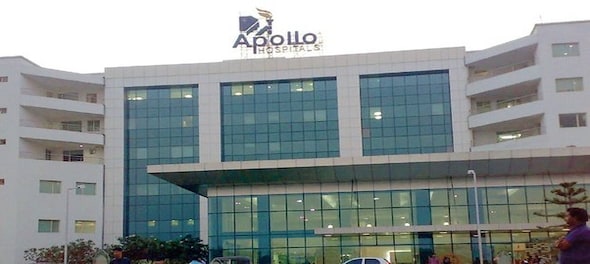
The Indian government's flagship health insurance scheme Ayushman Bharat does not cover the genuine costs of large hospitals, said Apollo Hospitals joint managing director Dr Sangita Reddy. In an interview with News18, Dr Reddy said the scheme's funds are not adequate enough to cover the high quality care provided by institutions such as Apollo Hospitals.
Despite being India's largest healthcare chain, Apollo Hospitals does not participate in the Ayushman Bharat scheme over the pricing structure. However, Dr Reddy told News18 that they were working with the government to establish a more reasonable pricing structure.
“While Ayushman Bharat focuses on the bottom 400 million people, among the recommendations, we have suggested that there are another 400 million people who will be very happy to pay for affordable healthcare,” Dr Reddy told News18.
She added that the hospital hopes to cater to the middle class and build a system at a price point that works for them.
Under the universal healthcare scheme, the government provides a cover of Rs 5 lakh per annum each to over 100 million impoverished families in India. In the Budget 2023, Finance Minister Nirmala Sitharaman allocated Rs 7,200 crore to the Ayushman Bharat Pradhan Mantri Jan Arogya Yojna — an 11.5 percent boost from last year.
Despite healthcare inflation running about three percent higher than the national rate, reimbursements to hospitals for their services provided under the scheme have not been appropriately adjusted for inflation, according to Apollo Hospitals.
“Yet, the prices under the scheme paid to hospitals have not been revised accordingly, though there have been small tweaks undertaken by the government,” she said.
This has been a recurring topic in the media as the Centre has had to revise its provisions and rates to appeal to private hospitals.
In June 2019, less than a year since the scheme had piloted, The Quint had reported that rates for most procedures under Ayushman Bharat were on average 30 percent less than Central Government Health Scheme rates.
This time, however, Dr Reddy added that the Ministry of Health and Health Secretary had "promised" Apollo Hospitals that they were working on building acceptable standards.
ALSO READ | Ayushman Bharat set for reboot with faster reimbursement, incentives for model hospitals
"We have submitted our data along with FICCI, NATHEALTH and others. They are working on building acceptable standards,” Dr Reddy said.
In her interview, Dr Reddy also touched upon another point: the pandemic of non-communicable diseases.
Although not contagious, diseases such as cancer, diabetes and obesity are of major concern as they are lifestyle-related. They don't change by spending 15 minutes with doctors or by taking tablets, Dr Reddy told News18.
However, the health industry has a new weapon in its arsenal for fighting such disorders — artificial intelligence. Through the use of technology, patients can receive specialised care and doctors can receive assistance in making precise clinical decisions.
“Non-communicable diseases only change by completely modifying lifestyle and when you have a coach, that too in your mobile phones, the shift is that it’s no longer doctor-centric care. From doctor-centric care, it is moving into specialities such as dieticians, physicians, yoga teachers, physiotherapists,” Dr Reddy said.
Through a new tool called Clinical Intelligence Engine (CIE), big health trends can also be analysed, Dr Reddy explained. The CIE accumulates data from Apollo Hospitals' clinical knowledge base and real-world clinical data.
That data can then be mined to provide insights on area-specific outbreaks and map hotspots to provide more proactive care, she told News18.
“Deciphering data can give insights into things like why Manipur is getting more tongue cancer, why one area is finding more abdomen cancer cases, outbreak due to contaminated water and much more," Dr Reddy said.
Apollo Hospitals, however, is cautious about potential data leaks as seen in other hospitals such as AIIMS and Safdarjung.
To read the full interview with News18, click here.
Check out our in-depth Market Coverage, Business News & get real-time Stock Market Updates on CNBC-TV18. Also, Watch our channels CNBC-TV18, CNBC Awaaz and CNBC Bajar Live on-the-go!


Delhi voters can avail free rides from booths to their homes on polling day
May 10, 2024 6:26 PM
Kolkata North: TMC fights 'TMC' in battle reflecting party's Old vs New debate
May 10, 2024 5:14 PM

